Femia > Health Library > Getting Pregnant > Trying to conceive > How long after implantation bleeding can I test for pregnancy?
How long after implantation bleeding can I test for pregnancy?
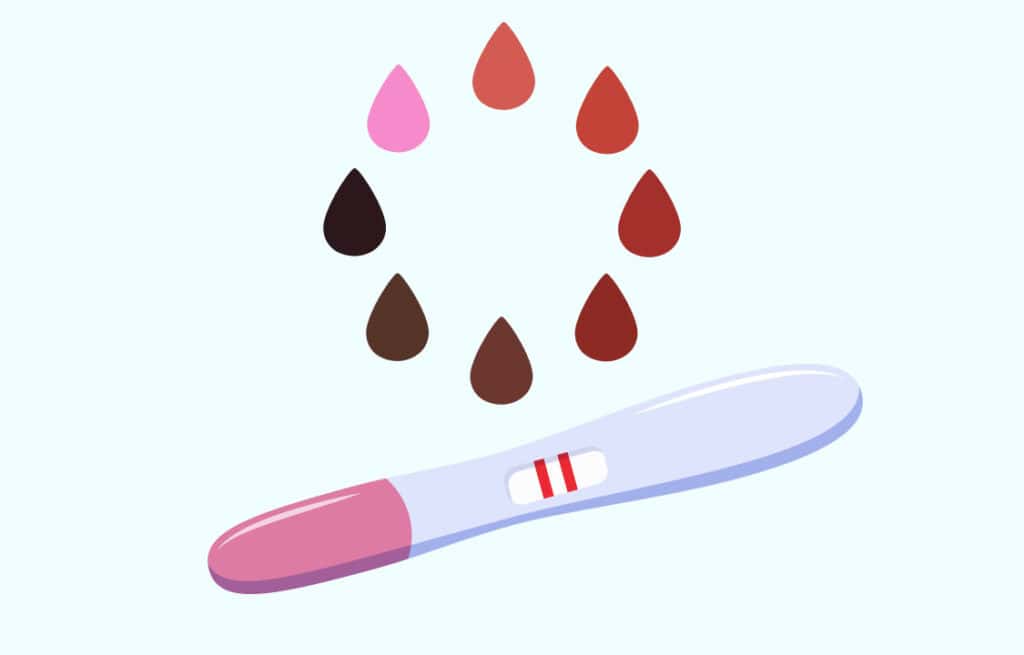
- Updated Mar 1, 2025
- Published
CRAFTED BY HUMAN
Crafted by human At Femia, we provide accurate and up-to-date information at every stage of your journey, from trying to conceive, pregnancy and postnatal support. All content is created by a real person based on in-depth research and own professional experience. Femia ensures that you will receive expert advice, strict accuracy and a personalized approach from our authors/medical experts. Learn more about our editorial policy.
FACT CHECKED
Fact checked At Femia Health, we maintain the highest standards of editorial excellence in delivering content focused on helping you conceive, guiding you through pregnancy, and supporting you postpartum. Explore our content review principles to learn how we ensure the accuracy and quality of our health and lifestyle tips for every stage of your journey.
You can get a beta HCG pregnancy test 1–2 days after you experience implantation bleeding, which is normal and can appear as mild spotting or light bleeding. But, for the most accurate results, it is best to wait until you have missed your period or 10–14 days after ovulation, as the HCG levels take time to rise and be detected in a test.
Not every woman experiences implantation symptoms or bleeding, and this does not indicate that implantation did not occur. Only a beta HCG test can confirm your pregnancy.
Implantation is when a fertilized egg is successfully attached to your uterine lining. This may cause light bleeding or spotting, also known as implantation bleeding. So, if you experience spotting after ovulation, it could indicate pregnancy, and you’ll want to take the next steps to confirm it. So, you might be wondering, “how long after implantation bleeding can I test for pregnancy?”
After successful implantation, your body gradually releases a hormone called human chorionic gonadotropin (HCG). This means that the presence of HCG hormone in your blood or urine is the most accurate indicator of successful implantation. However, it is crucial to know when and how to test for pregnancy after implantation for precise results.
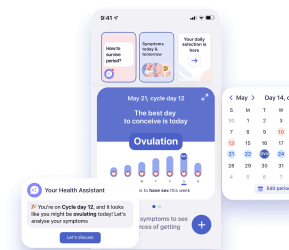
Understanding implantation and implantation bleeding
To understand implantation bleeding, let’s first look at what implantation is and why it causes bleeding.
@femia.fertility Replying to @bulky237 Download the Femia app to track your implantation symptoms and get the support you need on your journey to pregnancy! #implantation #ttc #imlantationsymptoms #pregnancysymptoms #education #health #ovulation #ttccommunity #greenscreen ♬ original sound - Femia fertility tracker
What is implantation?
Implantation is when a fertilized egg attaches to the lining of the uterus (womb) to develop and grow into a baby.
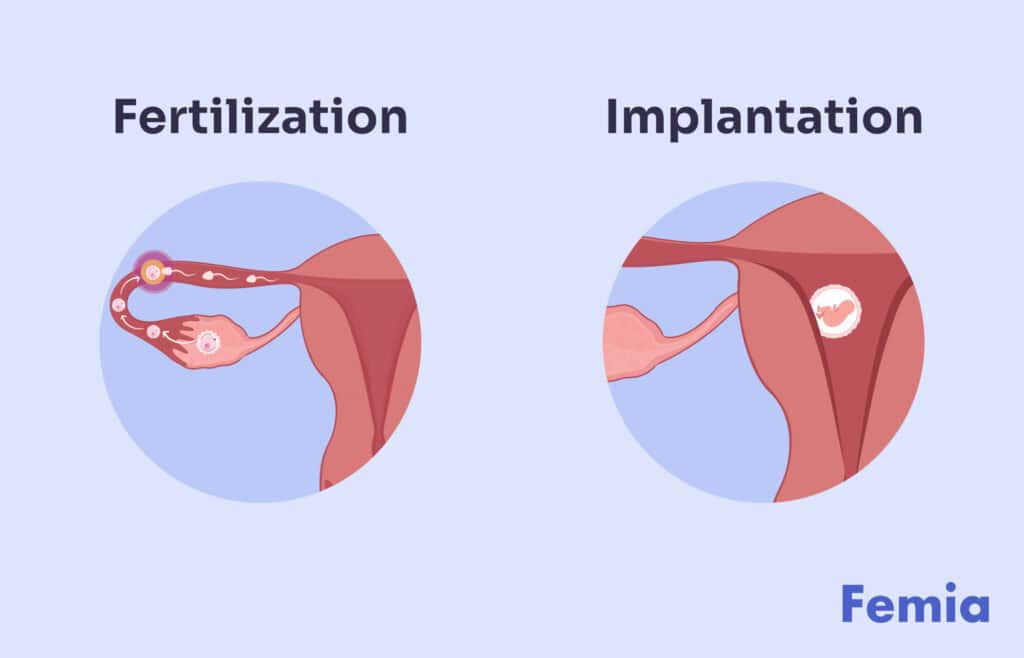
Implantation bleeding
After ovulation, the hormone progesterone is produced, which helps transform the uterine lining, making it thicker and more secretory to prepare for potential implantation and support a fertilized egg.
If implantation does not occur, the thick, built-up lining of the uterus breaks down and is shed from the body in the form of bleeding—otherwise known as your period.
On the other hand, if implantation occurs, the fertilized egg attaches itself by digging into the thickened uterine lining, which can disturb blood vessels. This may lead to mild bleeding or spotting, otherwise known as implantation bleeding.
Implantation bleeding typically occurs six to twelve days after the egg is fertilized with a sperm. It is an early sign of pregnancy, but not everyone experiences implantation bleeding, as every pregnancy is unique and every person’s body is different. It is estimated that only 25% of pregnant women experience implantation bleeding.
Successful implantation symptoms
In addition to light bleeding, there are some other implantation symptoms that may indicate pregnancy.
Apart from implantation bleeding, other successful implantation symptoms or early signs of pregnancy include:
- Missed period;
- Breast tenderness or discomfort;
- Abdominal cramping or bloating;
- Frequent urination;
- Dizziness;
- Nausea;
- Headache;
- Food cravings;
- Increased basal body temperature;
- Constipation;
- Heightened sense of smell.
However, not every pregnant woman experiences implantation symptoms, which is normal, as every pregnancy is unique. So, it is also possible that you may have signs of successful implantation without bleeding or even no symptoms at all. Both cases are normal and nothing to worry about.
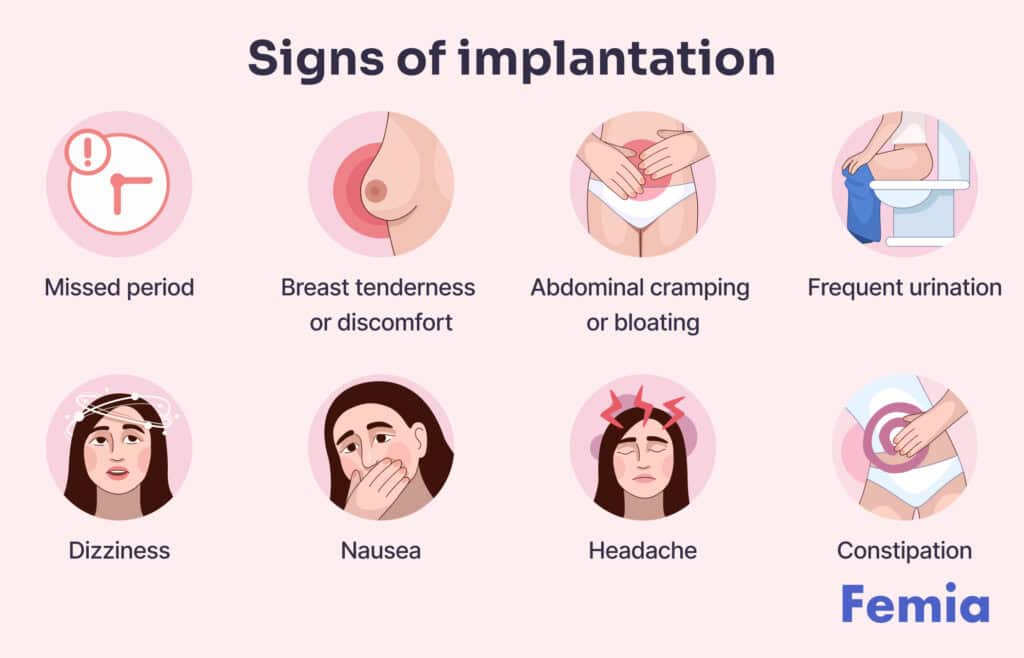
How soon after implantation can I test for pregnancy?
There are two ways to think about testing for pregnancy after implantation: the fastest way and the most accurate way. Let’s discuss the timeline.
Your body starts releasing beta HCG hormones when implantation is complete, but the levels of beta HCG require time to build up and appear in the test. If you are impatient to find out if you’re pregnant, the soonest you should take a test is 1–2 days after implantation bleeding, so a sufficient amount of HCG hormone has built up in your blood.
However, at this time, there is still the likelihood that HCG hormone levels will be too low to detect, and you may get a false negative. If you wait longer after noticing implantation bleeding or other implantation signs, the accuracy of the test will increase.

Optimal timeline for pregnancy test after implantation
We all know that missing a period is itself one of the strong indications of pregnancy. So, if you want the most accurate results, it is best to get your pregnancy test done the first day after your missed period or 10–14 days after ovulation.
If you want to get the test sooner, you can go for it 4–5 days after implantation bleeding. You can also use a more sensitive pregnancy test that can detect lower levels of HCG.
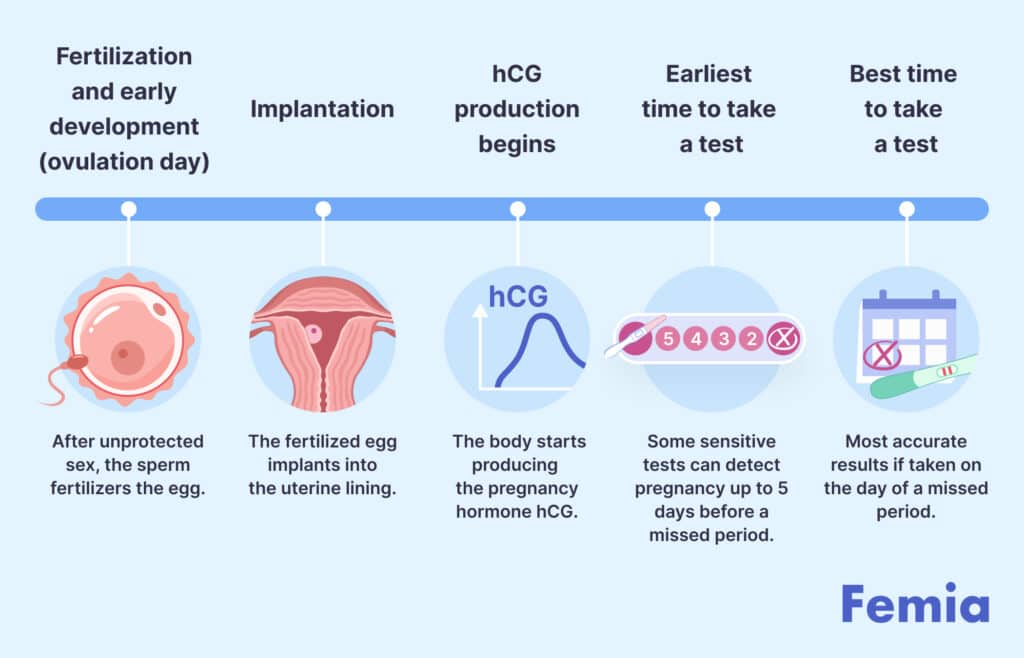
Questions from the Femia community
What if I have no symptoms after implantation?
Experiencing no symptoms after implantation is completely normal, and this does not necessarily indicate that you aren't pregnant or implantation hasn't occurred.
Remember that every person's body is unique, and only a reliable indicator, like a beta HCG test, can confirm pregnancy. Implantation symptoms (or lack thereof) can vary from person to person; so, don’t rely just on these possible symptoms to determine whether you are pregnant.
How accurate are early pregnancy tests?
All pregnancy tests are designed to check the levels of beta HCG in your blood or urine. An at-home early pregnancy test is about 98–99% accurate, but if you take the test too soon, there are chances of false negative results. So, waiting until a missed period can provide more precise and reliable results.
Can implantation bleeding be heavy like a period?
No, implantation bleeding will not be heavy like a period. Implantation bleeding occurs as spotting, a few drops of blood, or mild bleeding.
If you experience heavy bleeding, it is not implantation bleeding; it may be your periods or something else. In that case, it is recommended to consult your healthcare provider for personalized advice.
Can I experience implantation symptoms and not be pregnant?
Yes. Implantation symptoms, like cramping, bloating, fatigue, or others, are similar to symptoms that you might experience due to hormonal changes in the body or when your period is near.
Moreover, it is also possible that you may experience missed or late periods because of factors other than pregnancy, like emotional stress, increased exercise, or excessive weight loss or gain. Hence, to confirm your pregnancy, go for a reliable pregnancy test, like a beta HCG blood test.
What should I do if I suspect implantation but have a negative pregnancy test?
If you suspect implantation but have a negative pregnancy test, wait for a few days and then retake the test. If you are experiencing other pregnancy symptoms, like missed periods, and have concerns about your health, you may consult your healthcare provider for personalized advice.
The bottom line
Implantation is a complete process, and it can occur differently in every woman. Some may experience implantation symptoms and spotting, while some may experience only light bleeding or no prominent symptoms at all.
If you want to get your pregnancy test as soon as possible, wait at least 1–2 days after you notice implantation bleeding. However, the accuracy of the test will increase the longer you wait. For the most precise results, you can go for the test 10–14 days after ovulation or after missing your period.
If you had a negative result but still think you might be pregnant, consider repeating your test after a few days.
References
- Professional, Cleveland Clinic Medical. “Implantation Bleeding.” Cleveland Clinic, https://my.clevelandclinic.org/health/symptoms/24536-implantation-bleeding.
- “Pregnancy Tests.” Cleveland Clinic, https://my.clevelandclinic.org/health/diagnostics/9703-pregnancy-tests.
- “Symptoms of Pregnancy: What Happens First.” Mayo Clinic, 13 Mar. 2024, www.mayoclinic.org/healthy-lifestyle/getting-pregnant/in-depth/symptoms-of-pregnancy/art-20043853.
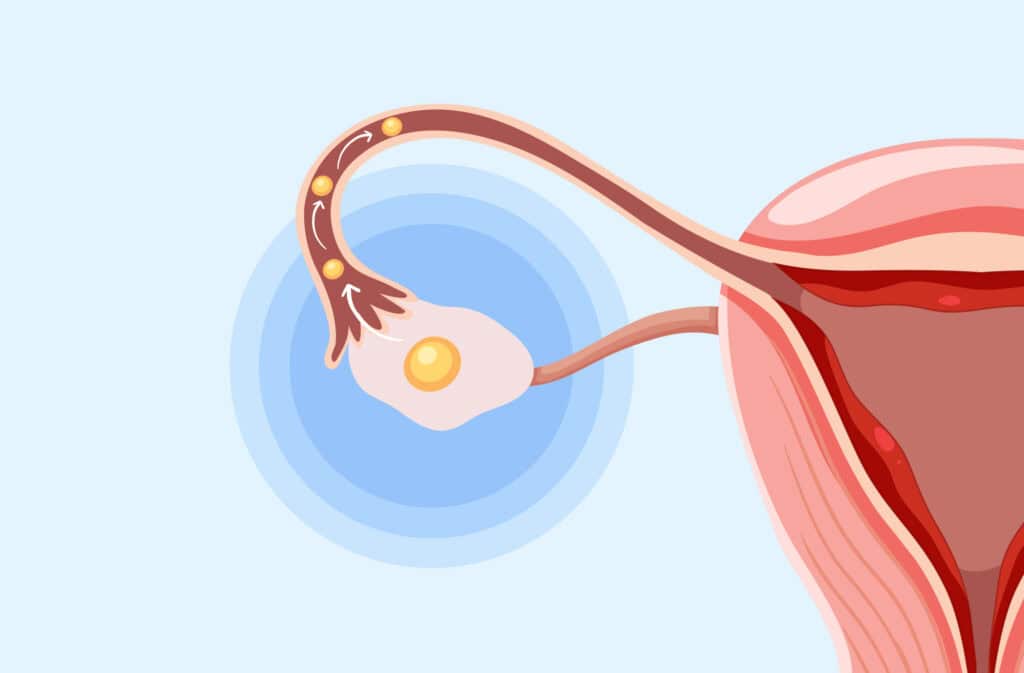
Learn about the ovulation phase of your menstrual cycle. Explore the timing and duration of this phase, common symptoms, and tips for comfort and conception.

Learn how PCOS supplements such as inositol, omega-3, and folic acid can help manage your PCOS symptoms and improve fertility.

Many wonder, is it safe to dye your hair while pregnant? You can take precautions to protect yourself and your developing baby from chemical exposure.

